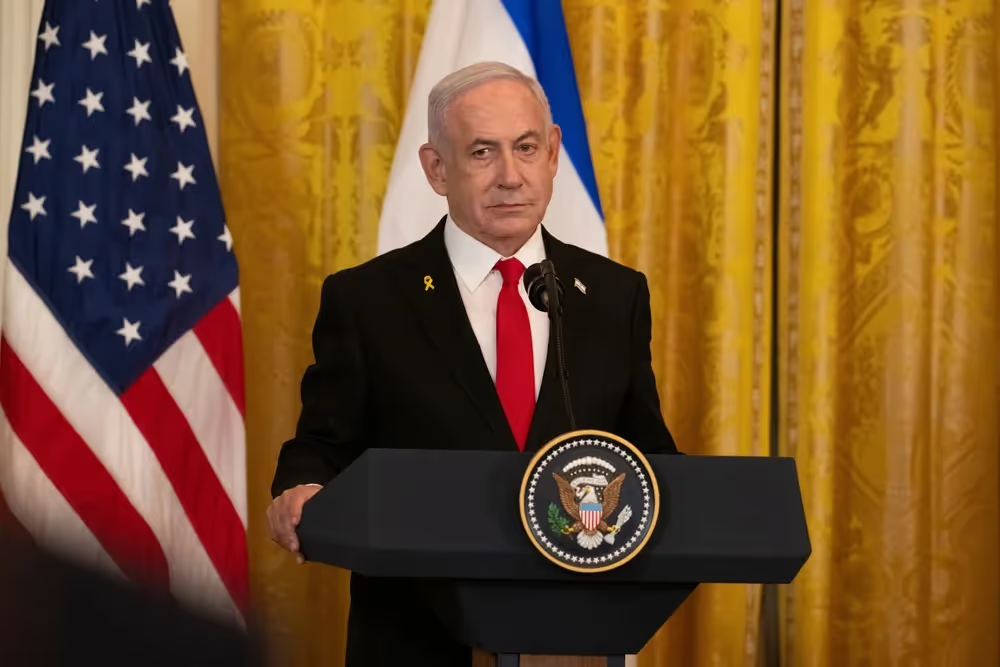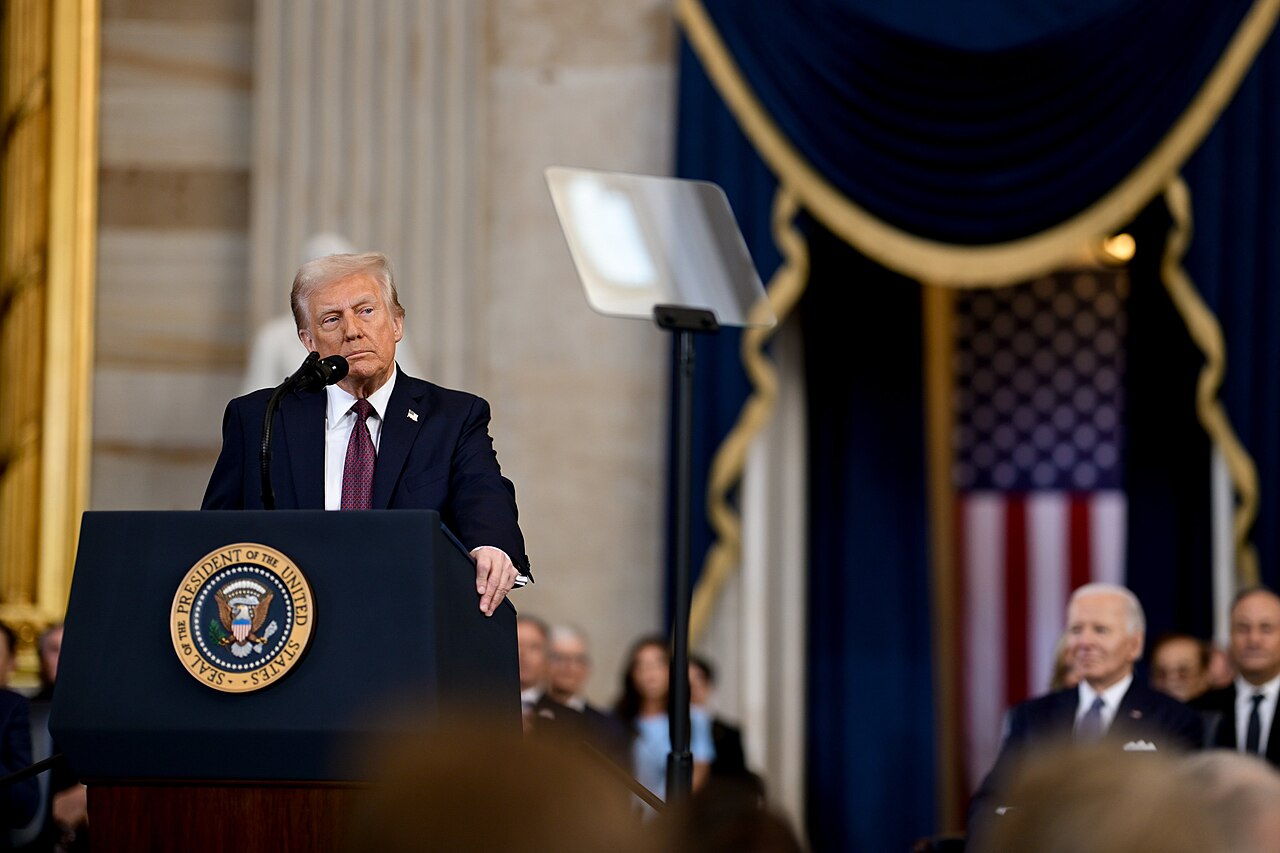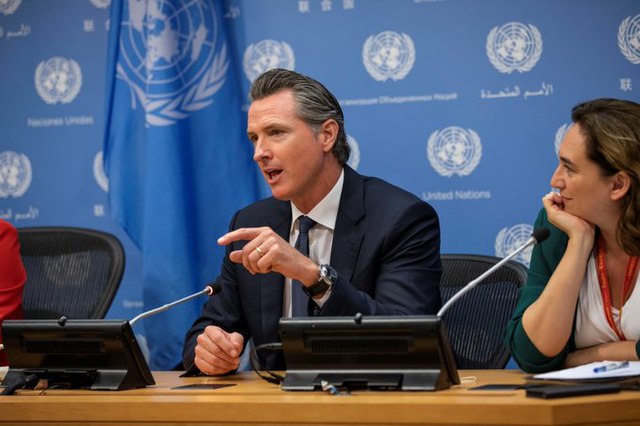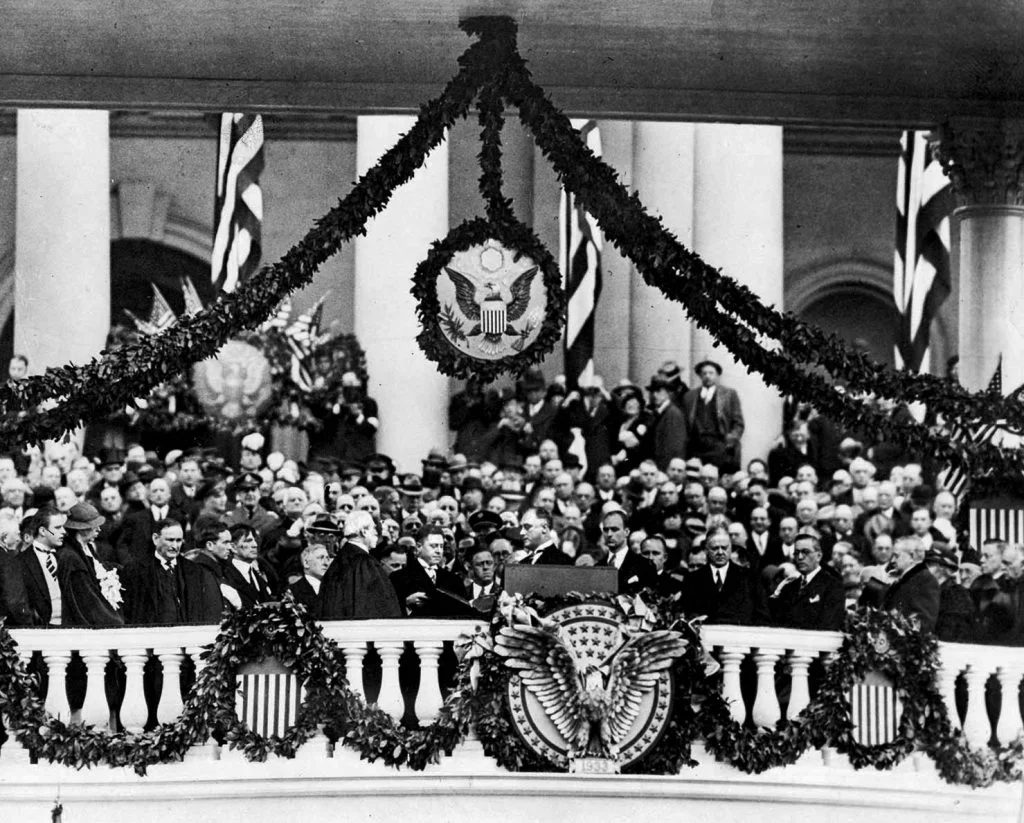
The Perils and Promise of Negotiation in International Relationships
When NOT to put your best foot forward.
On June 22, 2025, Donald Trump ordered American forces to use 30,000 pound bunker-buster bombs to destroy or damage the Iranian nuclear facilities at Fordo, Natanz, and Isfahan, after some sixty days of fruitless negotiation with the Iranians yielded no tangible progress toward the neutralization of the Iranian nuclear weapons. Trump made no declaration of war to keep the operations under wraps and boasted about his success afterwards.
Those earlier failed negotiations captured a powerful asymmetry, because no one expected that they would result in parallel cutbacks in the nuclear weaponry held by the United States or Israel. But the United States has never sworn to bring death to Iran, and it has had possession of nuclear weapons since 1945, without any deployment after their use at Hiroshima and Nagasaki. Israel, it is widely understood, has had nuclear weapons since the mid-1960s but has never deployed them. So in the face of this asymmetry, examine Article 51 of the UN charter, which states: “Nothing in the present Charter shall impair the inherent right of individual or collective self-defence if an armed attack occurs against a Member of the United Nations, until the Security Council has taken measures necessary to maintain international peace and security.” What is left unsaid is whether the right of self-defense can be used in anticipation of an attack from another nation. In Iran, Trump ignored the Charter and thought that delay would only allow completion of a nuclear weapon, and opted for the maximum attack.
Note that the private law has long taken a position that does not quite match the UN’s pronouncement, which recognizes that there are two kinds of error, moving too fast and moving too slow. Thus, in the English case of Tuberville v. Savage (1669), the question of conditional threats was raised in this pithy fashion:
Savage had made some insulting comments to Tuberville. In response, Tuberville grabbed the handle of his sword and stated, “If it were not assize-time, I would not take such language from you.” Savage responded with force, causing Tuberville to lose his eye.
Assize time is when the traveling judge is in town, ready to punish wrongful acts. So the question is, were these spoken words sufficient provocation to allow for the use of force in response? The court held no, but the case is trickier than that categorical judgment suggests. Having a hand on a sword makes aggression easier; saying that he would not use it while the judge was in town could be a clever feint. So should it go the other way, or should a jury be allowed to use its street smarts to decide whether force should have been used, and if so, whether the amount used was excessive? If Tuberville can provoke this analysis that considers all facts and circumstances, what should be done when the stakes are far higher, as in the Iranian incident? How then should the matter be approached as a matter of first principle?
In all human relations, both public and private, there are only two ways, alone or in combination, through which two or more entities can resolve their differences: negotiation or coercion. Both tactics have their obvious perils, so the great question is how these two strategies are to be used, alone or in concert. There is always a presumption in favor of negotiation over force, but failed diplomacy could easily lead to the greater use of force in ways that work to everyone’s disadvantage.
The place to begin the inquiry is to make a sharp distinction (which will always blur) between friend and foe. As to the former, a good tactic is to begin by putting your best foot forward. It is always possible to pick your friends in business or politics. When that selection is made, it is usually in the interest of both sides to minimize negotiation costs to maximize their joint long-term gain. By offering something outright without any preconditions, it signals to the other party that you value his potential services at a level greater than the amount you placed at risk on the table. If both sides follow the same strategy, they can usually work out an arrangement to facilitate exchanges, even without formal legal remedies, through a sequence of trades. Matters will improve significantly if additional security measures can be implemented, such as third-party guarantors, escrow agents, and real security. These arrangements work not only domestically but also in international relationships, and it is in the interest of both parties to finalize the deal as quickly as possible so that the benefits can begin to flow.
The situation is the opposite when dealing with security efforts in a relationship where each party has hostile designs on the other. At this point, the great danger of putting the best foot forward is that it will be chopped off, with nothing in exchange, so that the initial strategy is exactly the opposite: The only offer that is worth making to an opponent is one that will leave you better off than before, even if the other side responds in the way that is most advantageous to him and least advantageous to you. Now that caution rules, and given the risk of miscalculation, a situation can easily arise where one side has a strategic advantage in drawing out the negotiations as long as possible, often to make no deal at all, and use the time to amass forces and arrange for third party alliances before initiating armed conflict on more advantageous terms, to force fatigue and division on the in the ranks of the opposition. There is thus a high risk that the continuation of negotiations increases the risk of failure, at which point it is often the case that the earlier use of force becomes the best strategy.
It is, therefore, instructive to review again the tortured situation in the Gaza War that began with a sudden attack by Hamas on Israeli interests, which resulted in the deaths of some 1,500 people and the capture of some 250 hostages. In this case, there is no question as to who was the aggressor, which meant that the Israelis legitimately had a wide range of choices in the use of force. But the moment the conflict arose, there were constant demands from so-called neutral parties for a new cease-fire (just days after the earlier one had been broken), which of course would have meant a massive victory for Hamas. So from day one, it should have been clear that no deal was on the table that allowed Hamas to retain its iron grip on Gaza when hostilities were over.
At this point, the deadly risks taken by the Biden administration—whose ineptitude led to a debacle in Afghanistan and naked Russian aggression against Ukraine—should have been clear. The effort to keep these negotiations alive could yield some modest gains in the swap of hostages for criminals, which itself is a defeat of sorts because it validates the initial taking of hostages, which is a flat-out violation of the laws of war. Yet, to achieve that result, the Biden administration used a constant barrage of tactics to restrict Israeli operations under extraordinarily difficult situations where Hamas used human shields and placed military facilities over or next to hospitals and schools, which necessarily slowed down operations and prolonged the war. This, in turn, gave rise to additional casualties from operations that always involve both military and collateral damage in uneven proportions. At this point, the Biden administration’s approach was to place limits on Israeli activities to avoid, they thought, an escalation of the war. But that assumption was proved wrong by the Israeli decision to go for broke with Hezbollah in southern Lebanon, in Syria, and against Iran, even before the Trump intervention.
Why? The enemy's ability to escalate depends on its ability to survive with its military capabilities intact. But if the well-crafted all-out attack cripples the enemy, as surely could have been the case in Gaza, then no escalation is possible where your leadership is decimated, your supplies are cut off, and your rank-and-file soldiers are killed or captured. So again, any strategy of Israeli restraint makes possible the kinds of extreme responses that a strong initial thrust can counteract. Indeed, does anyone think that if Hamas, Hezbollah, and Iran were left with their full capabilities, they would have responded in their evil cause with the same degree of moderation asked of the Israelis? Thus, when President Biden told Netanyahu to “take the win” after the initial round of bombing and stylized missile response, he invited catastrophe by allowing the conflict to go through yet another iteration. No one can claim there is peace in our time because of the Israeli and American successes. And no one can say what the road to peace looks like from here. However, it is a moral certainty that the options for lasting peace are far better today because sham negotiations were set aside in favor of resolute and decisive military action, which avoided a hopeless stalemate with both more uncertainty and unnecessary deaths.
Richard A. Epstein is a senior research fellow at the Civitas Institute. He is also the inaugural Laurence A. Tisch Professor of Law at NYU School of Law, where he serves as a Director of the Classical Liberal Institute, which he helped found in 2013. Epstein is also the James Parker Hall Distinguished Service Professor of Law Emeritus and a senior lecturer at the University of Chicago.
Politics
.webp)
Liberal Democracy Reexamined: Leo Strauss on Alexis de Tocqueville
This article explores Leo Strauss’s thoughts on Alexis de Tocqueville in his 1954 “Natural Right” course transcript.
%20(1).avif)
Long Distance Migration as a Two-Step Sorting Process: The Resettlement of Californians in Texas
Here we press the question of whether the well-documented stream of migrants relocating from California to Texas has been sufficient to alter the political complexion of the destination state.
%20(3).avif)
Who's That Knocking? A Study of the Strategic Choices Facing Large-Scale Grassroots Canvassing Efforts
Although there is a consensus that personalized forms of campaign outreach are more likely to be effective at either mobilizing or even persuading voters, there remains uncertainty about how campaigns should implement get-out-the-vote (GOTV) programs, especially at a truly expansive scale.

There's a Perception Gap With the U.S. Economy
As we approach another election cycle, it’s worth asking: what’s real, what’s political theater, and what does it all mean if Democrats regain control of the House?

International Law Is Holding Democracies Back
The United States should use this moment to argue for a different approach to the rules of war.

Trump purged America’s Leftist toxins. Now hubris will be his downfall
From ending DEI madness and net zero to securing the border, he’ll leave the US stronger. But his excesses are inciting a Left-wing backlash

California’s wealth tax tests the limits of progressive politics
Until the country finds a way to convince the average American that extreme wealth does not come at their expense, both the oligarchs and the heavily Democratic professional classes risk experiencing serious tax raids unseen for decades.

The Clash of Civilizations at 30
Three decades on, Huntington did not foresee the extent to which the West would erode, but he did perceive the warning signs.

How FDR’s Bold Experimentation Blinkered the American Economy
Overall, False Dawn is a disciplined, evidence-heavy challenge to the New Deal’s most self-flattering myth: that bold experimentation rescued the American economy.
.avif)











